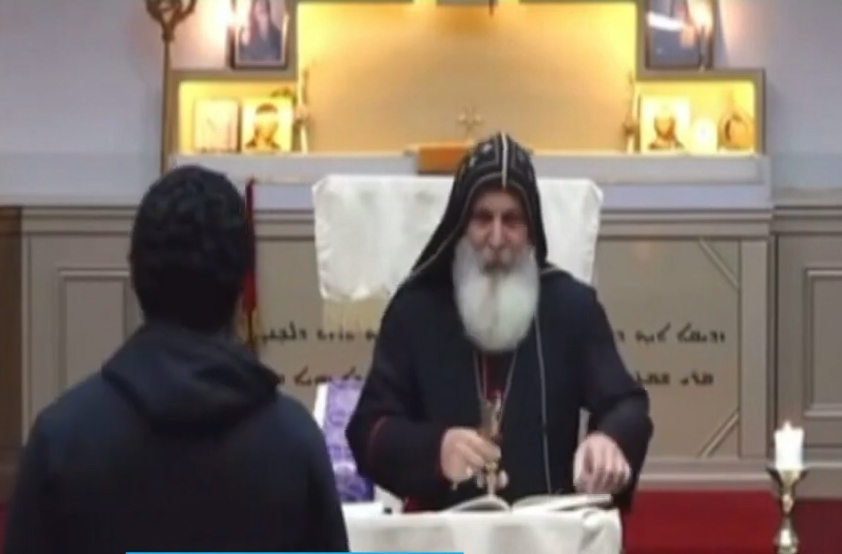By Syed Atiq ul Hassan, Sydney Australia, 16 April 2024
The recent assault on a bishop delivering a sermon in a Church in Wakely (Fairfield), NSW, by a 16-year-old teenager has understandably evoked widespread outrage and concern. This incident prompts us to examine the underlying causes of such violence and the responsibilities of various stakeholders in addressing them.
While unequivocally condemnable, this act necessitates a deeper exploration of the circumstances leading to this tragic event. How did a teenager, apparently watching a live stream of the bishop’s

speech, abruptly decide to travel from Punchbowl to Wakeley, enter the Church, and commit this assault? Although the offender remains unidentified by the police, speculation within the community suggests he may be a teenage Australian of Arab background.
Several potential explanations arise. Was this a singular event stemming from religious conflict or animosity? Did the perpetrator espouse extremist ideologies, precipitating an act of religious fundamentalism? Or does it reflect broader societal challenges such as intolerance and a lack of appreciation for multiculturalism and mutual respect? Additionally, is there a correlation between Australia’s foreign policy alignment, particularly regarding issues like Palestine, and domestic tensions?
Identifying the precise cause necessitates nuanced analysis. Are our youth lacking the guidance necessary for peaceful coexistence? If so, where does the responsibility lie? Should religious leaders shoulder the burden of fostering peace and tolerance within their communities, or is it a shared responsibility among broader societal influencers, including government and community leaders?
In the aftermath of such incidents, it has become customary for governmental bodies to call upon religious leaders to promote harmony and tolerance. However, the efficacy of this approach remains debatable. While religious leaders undoubtedly influence community values, their primary focus often revolves around maintaining religious cohesion.
For over two decades, I’ve advocated for a comprehensive approach to multiculturalism involving not only religious leaders but also intellectuals, social influencers, and community leaders. Practical initiatives such as multicultural social events and youth seminars can provide platforms for fostering understanding and respect among diverse communities.
Following this recent tragedy, NSW Premier Chris Minns, along with Multicultural NSW executives, have once again sought the assistance of religious leaders to restore peace in the community.

However, I contend that this narrow focus overlooks broader societal issues. Instead, the government should engage a diverse range of community and social leaders to address the underlying causes of disharmony and intolerance among our youth.
It’s time for a united effort across all sectors of society to confront these challenges head-on. Only through collective action can we aspire to build a more inclusive, tolerant, and harmonious society for future generations.
Another significant factor contributing to these unfortunate incidents lies with our teenagers and youth, who are often well-informed about international affairs through ubiquitous mobile media consumption. Australian youth need greater awareness of regional and international geopolitical issues within the context of Australian policy.
Australia, as a multicultural nation comprising over 150 ethnic communities, includes individuals with strong emotional ties to their ancestral lands, particularly in the Arab world. In such a diverse landscape, it becomes imperative for our leaders to educate youth on distinguishing between domestic and foreign affairs, emphasizing their greater responsibility towards local issues.
This responsibility falls squarely on our leaders’ shoulders, requiring them to formulate policies that reflect Australia’s independent stance on global matters. Aligning with broader international blocs, risks fracturing our multicultural society. Australia’s neutrality on foreign political and geopolitical issues is crucial for maintaining societal cohesion.
For instance, the ongoing conflict between Israel and Arab States highlights the importance of Australia adopting a nuanced stance rather than blindly following US policy, which risks polarizing Australians with affiliations to either side. Similarly, taking sides in disputes like the Taiwan issue could divide Australians based on their support for differing positions.
Our national leaders must recognize that Australia’s global standing hinges on fostering an inclusive environment through fair and equitable policies. Australia will only continue to earn respect internationally by formulating foreign policies that serve its interests and promote multicultural harmony. Simultaneously, adopting a neutral stance on foreign issues will prevent these matters from infiltrating our internal societal affairs.
[The writer is a Sydney-based journalist, a multicultural community representative, and the winner of the NSW Harmony Award in 2015.]




